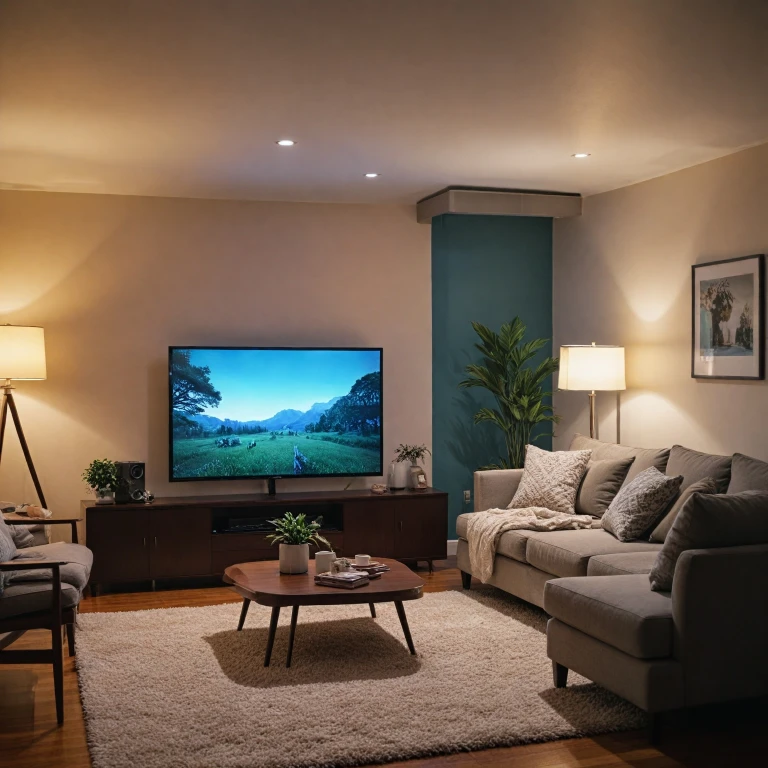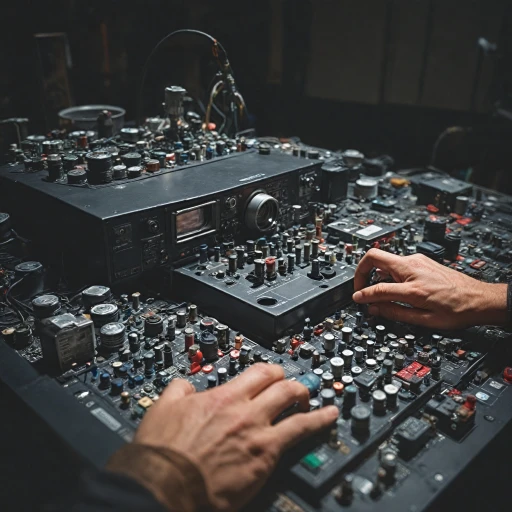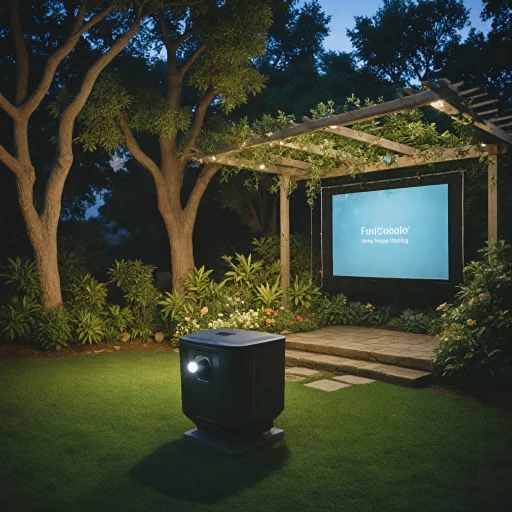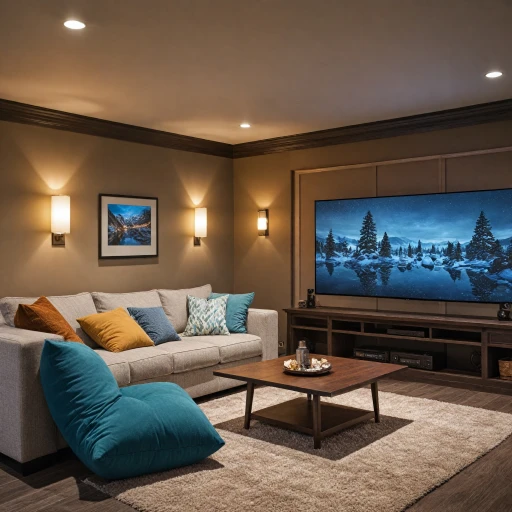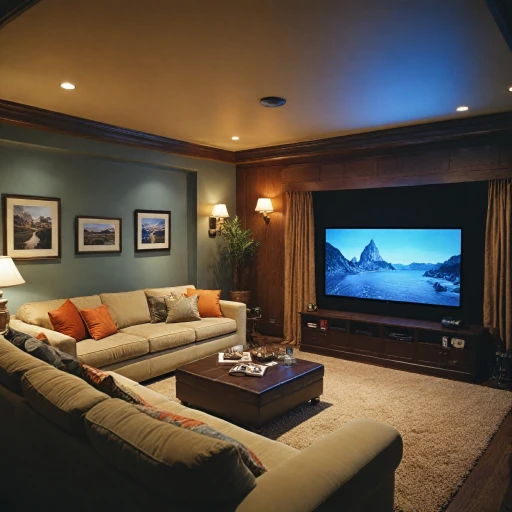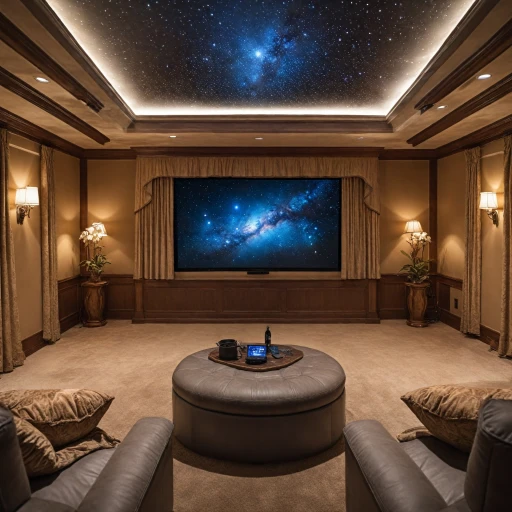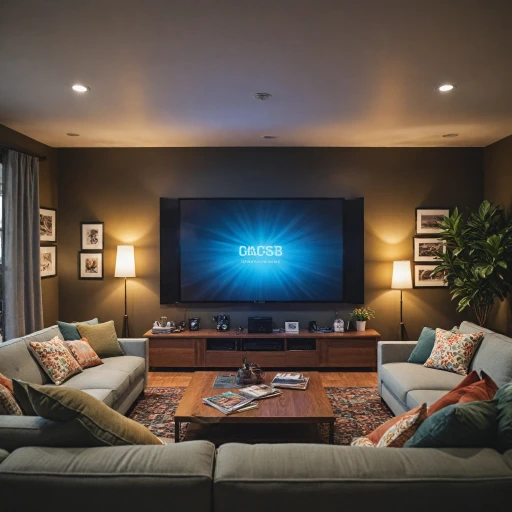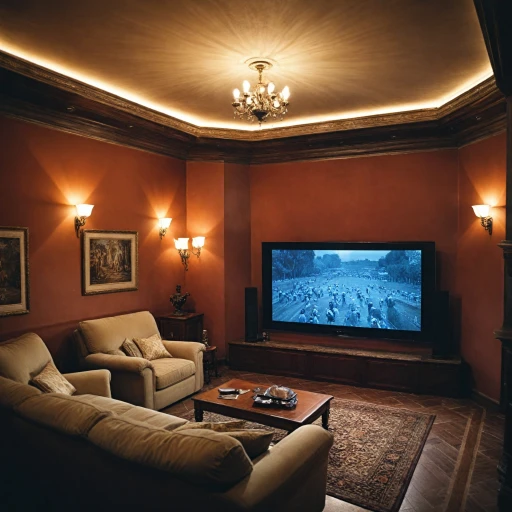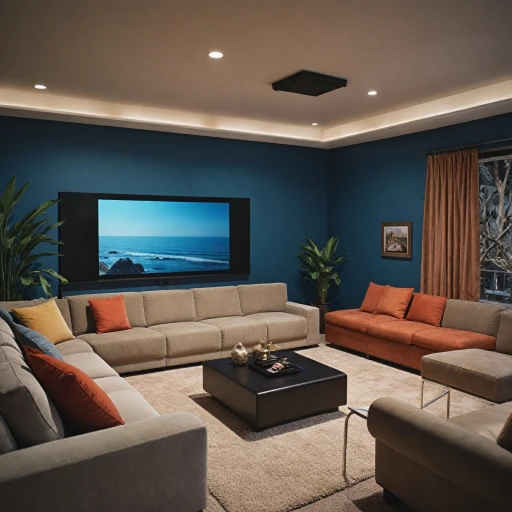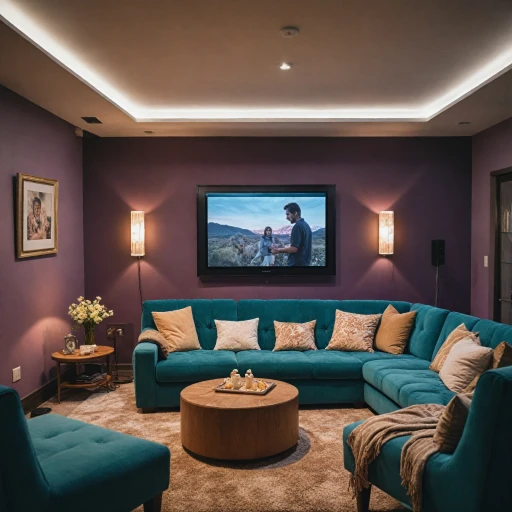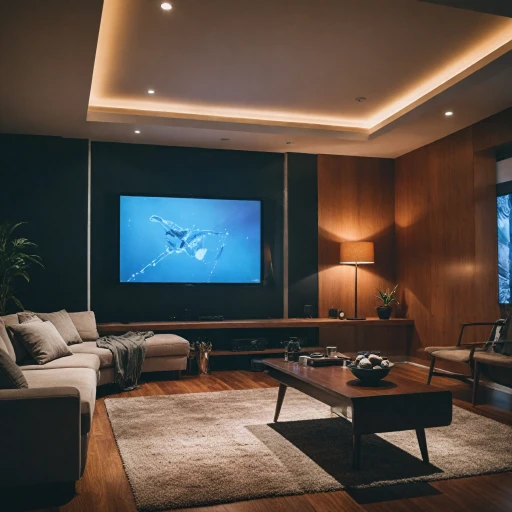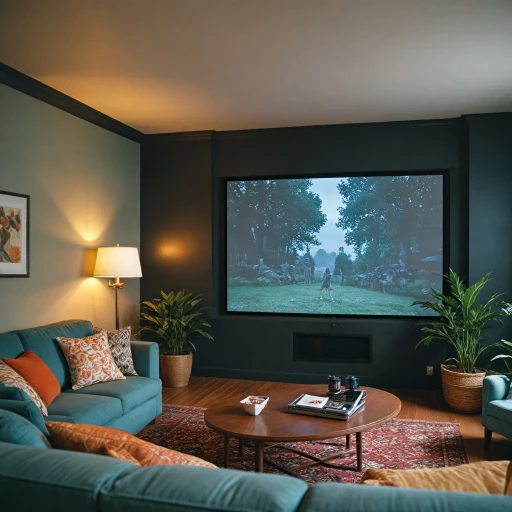
Understanding LED Projector Technology
Delving into LED Projector Fundamentals
LED projectors, heralded for their innovative light source technology, have quickly become a staple in home theater setups. These devices leverage LED lights to illuminate the projector lens, offering a distinct approach compared to traditional lamp-based projectors. This technology adopts a solid-state light source, delivering exceptional longevity and vibrant color outputs. Whether you're exploring a mini projector or a high-end home theater projector, understanding LED technology is crucial in making an informed decision. LED lights are known for their extended lifespan, often outliving conventional lamp and laser projector alternatives. This means less frequent replacements, saving you money over time. Furthermore, LED projectors deliver consistent brightness, measured in lumens and ansi lumens, ensuring a clear, white image with rich color contrasts. One of the key advantages of LED projectors is their energy efficiency. These projectors consume less power, contributing to lower operational costs. This energy efficiency, paired with their portable nature, makes them an appealing choice for those looking to buy a smart projector for versatile settings. Popular models, like those from BenQ, offer features that cater to various needs, reflecting the current market's demand for functionality and performance. As with any technology, there are numerous factors to weigh. Consider the price, projector lens quality, and specific functions such as wifi bluetooth connectivity when comparing options. Many online sellers offer comprehensive user guides, but browsing through online reviews, rated in stars, can also provide insights into the product’s quality. Incorporating LED projectors into your home theater involves more than just understanding the technology. It’s essential to know which projector suits your space best, and our detailed comparison to other technologies can help guide your choice. To further explore the world of home theater projectors, check out this informative piece on unveiling the magic of a home theater projector box, offering deeper insights into the setup and utilization of projectors in home environments.Benefits of Using LED Projectors in Home Theaters
Advantages of LED Projectors in Home Theater Systems
LED projectors have become a popular choice for home theater systems, offering a host of benefits that enhance your viewing experience. One key advantage is their ability to produce vivid colors and sharp images due to the use of LED lights as the primary light source. Unlike traditional lamp-based projectors, LEDs offer more consistent brightness and color accuracy, which is ideal for movie enthusiasts seeking a theater-like experience.
Another significant benefit of LED projectors is their longevity. These projectors can last much longer than their traditional counterparts because of the long lifespan of LED lights. This translates to lower maintenance costs, as there's no need to frequently replace expensive lamps. Moreover, the energy efficiency of LEDs helps reduce electricity consumption, making them an economical choice over time.
The compact and often portable design of LED projectors is another attractive feature. Many models, including mini projectors, can be easily moved and set up in different rooms or even outdoors for a movie night under the stars. Their lightweight nature also makes them ideal for those who prefer a clutter-free setup.
LED projectors are generally quieter as they produce less heat compared to traditional lamp-based models, thanks to the inherent efficiency of LED lights. This ensures silent operation, letting you immerse yourself in your favorite films without the distraction of a loud cooling fan.
Incorporating a smart projector option adds wifi and bluetooth capabilities, allowing seamless connectivity with various devices for a hassle-free streaming experience. For gamers, enhancing your gaming experience with the Nebula Cosmos Laser 4K Projector can bring your games to life with high-quality visuals and real-time responsiveness.
Overall, LED projectors provide a versatile and cost-effective solution for home theaters with their exceptional image quality, durability, and convenience. Whether you're using a sleek BenQ LED model or exploring the realms of a short throw or laser projector, the myriad benefits of LED technology are sure to elevate your home entertainment.
Choosing the Right LED Projector for Your Space
Key Considerations for Selecting an LED Projector
Choosing the right LED projector for your home theater is crucial to achieving the best viewing experience. Whether it's for movies, gaming, or streaming, here are some key factors to keep in mind:Brightness and Lumens
The brightness of a projector is vital to ensure clear image quality, especially in varying light conditions. LED projectors are known for their efficient use of light. Look for models that offer a minimum of 1000 ANSI lumens for dark rooms, while brighter environments may necessitate projectors with higher lumens.Image and Color Quality
For movie enthusiasts, image and color fidelity are paramount. LED projectors are praised for their vibrant color reproduction. Consider projectors with a high contrast ratio and color accuracy. Brands like BenQ offer models with excellent performance in color and image clarity.Resolution
The resolution of your projector impacts the clarity of the image. Opt for models with at least Full HD (1080p) resolution for a sharp and detailed image. For those looking to future-proof their setup, 4K projectors provide exceptional image quality.Portability and Space Limitations
If your space is limited or you’re looking for flexibility in setup, portable projectors or short throw options are worth considering. These compact models can adapt to various room sizes and configurations. Check sellers for mini projectors if space constraints are a concern.Connectivity Options
Modern entertainment setups often involve multiple devices. Ensure your LED projector includes adequate ports for HDMI, USB, and supports wifi bluetooth connections. For a more diverse experience, smart projectors can integrate directly with streaming services.Budget-Friendly Considerations
While LED projectors generally offer good value for their price, costs may vary based on features such as laser light sources or enhanced lenses. Set a budget and compare products, keeping in mind the cost differences between LED, lamp, and laser projectors.Brand Reputation and Reviews
Consider the reputation of the brand and read user reviews. Products with high stars and favorable feedback often provide reliable performance and customer satisfaction. BenQ LED projectors, for instance, are frequently recommended in the market. When selecting a projector, these factors will help in making an informed choice, enhancing your viewing experience. For more detailed guidance on choosing an LED projector out of the multitude available, this resource on ideal projector for your camping adventures might offer further insights.Installation Tips for Optimal Viewing
Setting the Stage for the Ultimate Viewing Experience
When installing your LED projector for the perfect home theater setup, there are a few key factors to consider to ensure you're getting the most out of your device. Proper installation can dramatically enhance imaging, color accuracy, and overall viewing experience, making all the difference.Positioning and Distance
Consider the distance between the projector lens and your screen. Different projector models, including mini projectors and short throw options, have different optimal distances. A projector's user guide typically provides recommended throw distances for achieving the desired image size, measured in lumens or ANSI lumens. Generally, ensure the light from the projector forms a square or rectangular image without skewing.Optimizing Screen Surface
Your screen should complement your projector's capabilities. Whether you're using a BenQ LED projector, a portable projector, or a more traditional theater projector, the screen's surface affects light reflection. White screens are most common, but depending on your room's ambient light, a gray screen may better enhance contrast and color.Ambient Light Control
LED projectors and projectors led in general perform best in controlled lighting conditions. Consider installing blackout curtains or blinds to minimize external light effects. This allows the projector's light source to achieve the intended high beam brightness and maintain vivid colors.Connecting Smart Features
Wi-Fi Bluetooth capabilities can elevate your projector into a smart hub. Once connected, your LED projector can stream directly from apps, providing a free content-rich experience that caters to your preferences. Following a few simple steps in the user guide often enables these smart projector features.Professional Calibration
For those seeking the ultimate performance, consider professional calibration services. These experts fine-tune your LED projector's settings to match the room's specific requirements, ensuring the best image quality possible. Careful consideration and installation can truly transform your LED home theater system into an immersive experience suited for everything from film marathons to gaming sessions with a gaming projector option.Maintenance and Care for LED Projectors
Keeping Your LED Projector Performing at Its Best
Maintaining your LED projector is crucial to ensure its longevity and consistent performance. Regular care not only saves you on repair costs but also maintains the quality of light output and image clarity that enhances your viewing experience.- Dust and Environment: Place your projector in a dust-free environment, as accumulated dust can obstruct the projector lens, affecting image quality. Consider using a soft, microfiber cloth to gently clean the lens to prevent scratches.
- Temperature Regulation: Keep your projector in a well-ventilated area to prevent overheating. Excessive heat can impact projector components, particularly those using LED lights or laser light source. Make sure the projector's vents are not blocked and the internal fans are functioning correctly.
- Regular Usage: Like most electronics, regular usage can help keep the projector in good working condition. However, avoid excessive use that can overheat or prematurely wear out the components, such as the lamp or lens.
- Software Updates and User Manual: If you own a smart projector with features like WiFi Bluetooth, ensure that the firmware is up to date to enjoy the latest improvements. Always refer to the manufacturer's user guide for maintenance instructions tailored to your specific projector model, whether it's from BenQ or another reputable brand.
- Professional Servicing: If you notice significant drops in image quality, such as dimness or color inconsistencies, it might be time to consult a professional. Some issues can be tied to wear on the projector's high beam light source, particularly in models boasting high ANSI lumens ratings.

